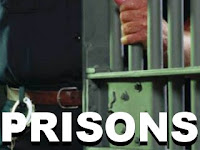See Also: GV prison designated for sex offenders12-9-15 Arizona:
KINGMAN - When the Hualapai Unit at Arizona State Prison-Kingman reopens next month for the first time since riotous inmates destroyed four of five housing pods in July, the facility won't be home to general population prisoners, but to sex offenders.
Arizona Department of Corrections spokesman Bill Lamoreaux confirmed the change in an email Monday.
Lamoreaux said the same inmate criteria put in place following a deadly escape in 2010 are in place.
That includes:
• No inmates serving life sentences (including those serving 25 to life);James Black, a vice president with the GEO Group, a private prison operator that took over from prior operator Management and Training Corp. on Dec. 1, asked for time to consult with the DOC before commenting, as he isn't certain how much detail the DOC wants made public.
• No convicted murderers or attempted murderers (including current and prior convictions);
• No inmates with an escape history;
• No inmates with more than 20 years left to serve.
Statistics on how many sex offenders are among the more than 43,000 people in prison in the state are difficult to find.
The federal Bureau of Prisons reports more than 14,000 of its roughly 200,000 inmates are incarcerated for sex offenses, more than 7 percent. Based on Arizona's prison population - and assuming the same ratio of sex offender inmates exists in the state as it does on the federal level - slightly more than 3,000 of the state's inmates are in for sex crimes.
The prison - including the Cerbat Unit - has about 3,500 beds.
DOC uses the Sex Offenders Education and Treatment Program, which is based on a cognitive-behavioral and relapse prevention model of assessment and treatment, according to the DOC website.
The program is designed to assist the offender in "managing sexually exploitive behavior" so they don't reoffend.
DOC's website said the program includes psychological testing, getting the inmate to acknowledge the offending behavior, modifying cognitive distortions, managing deviant sexual urges and impulses, developing empathy for the victim, and acquiring relapse prevention skills.
Participants are encouraged to take an active role in treatment by attending weekly classes, group therapies and other components. ..Source.. by Doug McMurdo


No comments:
Post a Comment